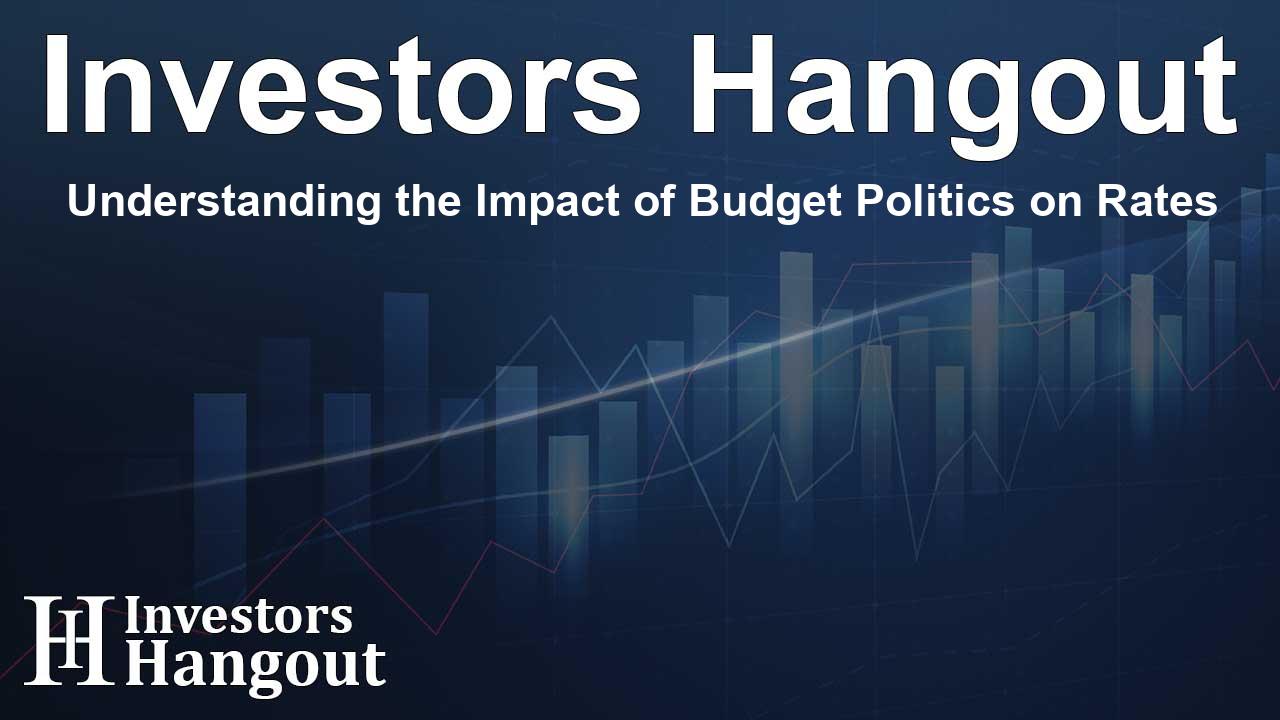Understanding the Impact of Budget Politics on Rates

Influence of Budgetary Politics on Market Rates
Navigating the complexities of budget approval through political channels can bring about significant rate volatility. Markets respond keenly to fiscal policies, and current sentiments suggest that we might be in for some fluctuations.
Treasuries: Market Dynamics at Play
Recently, US Treasuries embarked on a sell-off shortly after the release of inflation data, which did not disappoint market expectations. Surprisingly, rather than experiencing a downturn, yields moved in the opposite direction, indicating a market sentiment that is influenced more by undercurrents than just straightforward data releases.
This shift could either be attributed to major market players trying to counter a buying trend with sizable sell orders or reflect an urgency to push yields higher based on persistent fiscal uncertainties and looming inflation risks. Such dynamics complicate potential actions from the Federal Reserve, particularly regarding interest rate adjustments.
The upcoming issuance of new treasuries highlights the underlying fiscal concerns that are generating turbulence not just in the U.S., but also internationally. Global geopolitical issues like those seen in Japan and the UK further complicate the picture, adding layers of uncertainty to market responses.
Ongoing Political Narratives in France
As political dialogues resume in France focusing on the new budget, we can anticipate more headlines reflecting government negotiations that could impact financial markets. The proposed budget includes unpopular austerity measures aimed at addressing fiscal challenges, including significant cuts to public spending.
While this approach might seem necessary to mitigate fiscal issues, initial market reactions to these proposals were muted, with bond spreads showing little movement. The true measure of this budget's impact will hinge on parliamentary acceptance, particularly as France confronts its substantial government deficit.
As global market participants remain attuned to fiscal developments, increased volatility is likely. French fiscal challenges, however, do not seem to have caused significant upheaval in neighboring European bond markets, with Italian bonds tightening in response instead, suggesting a complex interplay of regional economic sentiments.
Market Expectations and Upcoming Economic Indicators
As the week progresses, all eyes will be on key economic indicators from the UK, particularly the upcoming CPI data. These figures are critical as they could potentially shape the Bank of England's trajectory in the face of ongoing economic adjustments. Analysts predict a minor decline in the core services inflation component, signaling the need for careful navigation of fiscal policy.
Additional insights may emerge from trade balance numbers in the eurozone, shedding light on how tariff tensions are influencing regional economic activities. From the US, producer price index data is expected, which will provide further clarity on the inflation landscape and pricing pressures.
The Federal Reserve's Beige Book will also provide qualitative insights, although it is typically not a major market mover on its own. However, it contributes to the broader understanding of economic conditions, offering a richer context for investors.
In terms of market activity, the UK has a scheduled bond auction to address current supply needs, alongside Germany's auctions of long-dated bonds. These events often attract considerable market focus, influencing sentiment and trading strategies.
Frequently Asked Questions
What are the primary factors influencing current market rates?
The interplay of geopolitical events, fiscal strategies, and inflationary concerns has created an environment ripe for rate volatility.
How does the political climate in France affect economic stability?
Political negotiations surrounding budget approvals can introduce uncertainty, influencing investor confidence and bond market behavior.
Why are US Treasury yields significant in market analysis?
US Treasuries are considered a benchmark for global interest rates, reflecting broader economic health and risk sentiment.
What can we expect from upcoming economic indicators?
Upcoming data releases, such as CPI and trade balances, are likely to provide insights that could shape monetary policy and market strategies.
How should investors prepare for potential volatility?
Investors are advised to stay informed on fiscal developments and economic indicators, potentially adjusting their portfolios in response to market signals.
About The Author
Contact Dominic Sanders privately here. Or send an email with ATTN: Dominic Sanders as the subject to contact@investorshangout.com.
About Investors Hangout
Investors Hangout is a leading online stock forum for financial discussion and learning, offering a wide range of free tools and resources. It draws in traders of all levels, who exchange market knowledge, investigate trading tactics, and keep an eye on industry developments in real time. Featuring financial articles, stock message boards, quotes, charts, company profiles, and live news updates. Through cooperative learning and a wealth of informational resources, it helps users from novices creating their first portfolios to experts honing their techniques. Join Investors Hangout today: https://investorshangout.com/
The content of this article is based on factual, publicly available information and does not represent legal, financial, or investment advice. Investors Hangout does not offer financial advice, and the author is not a licensed financial advisor. Consult a qualified advisor before making any financial or investment decisions based on this article. This article should not be considered advice to purchase, sell, or hold any securities or other investments. If any of the material provided here is inaccurate, please contact us for corrections.
